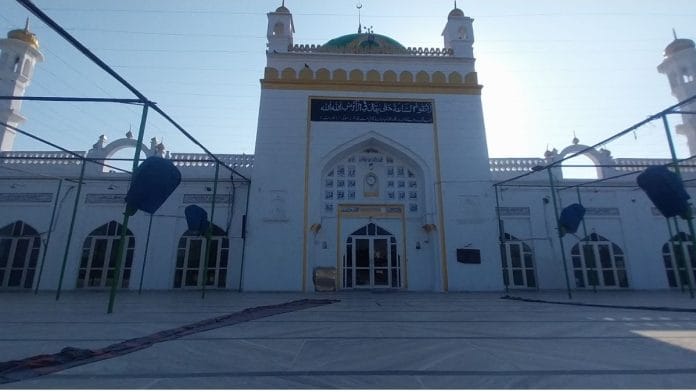New Delhi: The Supreme Court observed Friday that it was closely monitoring Uttar Pradesh’s Sambhal district to ensure peace and harmony is maintained there.
A bench led by Chief Justice of India (CJI) Sanjiv Khanna made the remarks as it restrained the Sambhal district administration from implementing its order to revive a “well” located partially inside the disputed Shahi Jama Masjid.
The mosque is the subject of a dispute pending before the Allahabad High Court.
According to the mosque management committee, the administration’s latest move is part of a larger drive to restore old temples and wells in the city and make them operational for public prayers or use.
In its application filed before the Supreme Court, the committee said that the well inside Shahi Jama Masjid is stated to be one of the 19 wells identified in the city for this purpose.
The proposal to revive this well, according to the application, is in violation of the Supreme Court’s 29 November 2024 order that instructed the Uttar Pradesh government to maintain peace and harmony in Sambhal.
The order was issued while granting liberty to the mosque management committee to move the Allahabad High Court challenging a district court’s ex-parte order of 19 November 2024, which, on a civil suit, appointed a court commissioner to carry out the mosque’s survey. The civil suit claimed the mosque was built over a demolished temple.
According to the mosque management committee’s application, the Sambhal administration has taken a series of actions that cannot be said to be “conducive to maintaining peace and harmony”.
This, it said, is evident in the controversy created around the well’s revival.
The well linked to the Shahi Jama Masjid, it stated, is situated at the trijunction of three narrow lanes leading to the main entrance of the mosque.
The mosque management has also taken strong exception to the district administration’s publicity drive for the revival of old temples and wells. According to the committee, posters put up by the district administration around the mosque, claiming to grant public access to the well inside the mosque, refer to the water body’s “religious significance”.
Appearing for the mosque management committee in the Supreme Court, senior advocate Huzefa Ahmadi drew the court’s attention to one of the posters displayed by the district administration. The poster, he argued, declared the site to be a Hindu temple.
“The notice referred to the place as Hari Mandir and called for puja at the site. Puja will now start here. The well partially falls within the mosque premises, while half of it is outside,” he told the court.
“No, you (State) cannot do that, please do not do that,” the bench promptly responded on seeing the poster. It asked the state to file a status report, while telling Ahmadi that “others should also be allowed to use the well”.
However, Ahmadi insisted that the mosque had been drawing water from the well since time immemorial and expressed apprehension over the state disturbing the status quo.
“The respondents (state) shall not give effect to any notice in relation to the well,” the court ordered, as it fixed 21 February to hear the matter again.
(Edited by Radifah Kabir)
Also Read: In ‘one-of-a-kind’ order, SC grants bail to POCSO accused on condition he pays child support






